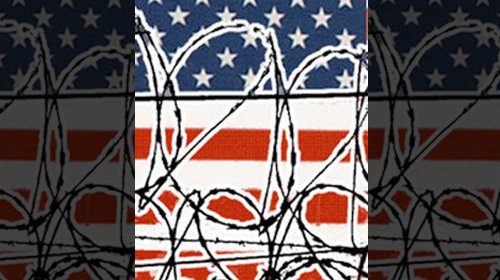
In April 2011, the ACLU filed a Freedom of Information Act request seeking a narrow yet critically important set of government documents: internal CIA reports detailing the use of unauthorized interrogation techniques at its secret overseas prisons, also known as “black sites” (you can read the request here). Investigative news coverage and earlier FOIA requests had alerted us to the potential existence of many such reports. Most notably, in August 2009 – in connection with a separate ACLU FOIA request – the government had released a partially-redacted version of one report, the Special Review: Counterterrorism Detention and Interrogation Activities (September 2001–October 2003).
In the Special Review, the CIA’s internal watchdog, the Office of Inspector General (OIG), detailed the agency’s overseas counterterrorism detention and interrogation activities, and made clear that individuals working for or with the CIA had engaged in conduct that neither the agency itself nor the OIG regarded as authorized. The most egregious examples of such conduct included an interrogator’s use of an unloaded handgun and a power drill to threaten a detainee. The Special Review also discussed the CIA’s use of such unauthorized techniques as the manipulation of pressure points, mock executions, blowing cigar smoke at a detainee, the use of a stiff brush on a detainee, and stepping on a detainee’s ankle shackles. The Special Review also referred to instances where detainees had died in CIA custody. (In addition, the report detailed the CIA’s use of approved interrogation techniques – such as waterboarding – in a manner that far exceeded the limitations set by the Department of Justice.)
Importantly, the Special Review alluded to other CIA OIG reports documenting the agency’s use of unauthorized interrogation techniques against detainees abroad. When our FOIA request seeking these additional reports went unanswered, the ACLU filed suit to compel their release.
Although the CIA subsequently acknowledged the existence of 11 additional OIG reports covered by our FOIA request, the agency withheld all of them in their entirety, citing various exemptions in the FOIA law. The titles of the withheld reports, which the CIA did release in response to our FOIA request, provide a glimpse of how significant these documents are – and the public interest in their release. One document, for example, is titled “Investigation of the Death of ‘Abid Hamad Mahawish Al-Mahalawi,” and another concerns an “Investigation of the Death of Manadal Al-Jamaidi.” One report details the CIA’s “Investigation of Abuse of Detainees,” while another records the “Investigation of the Nonregistration of Detainees” – that is, the practice of detaining individuals without registering their names, so that they effectively are “disappeared.”
Earlier this year, we filed a motion for summary judgment, arguing that the CIA’s claim of FOIA exemptions was legally improper, and asking the D.C. federal district court to order the release of these crucial reports. In July, we won a small but important victory: the court ordered the CIA to produce all eleven reports for in camera review – that is, to allow the court itself to read the reports in closed session to ascertain whether their withholding was lawful.
Last week, the court ruled on the balance of our outstanding motion with disappointing results. The court held that 10 of the 11 reports were withheld properly, notwithstanding our arguments that the information we are seeking from these reports is narrowly confined to activities that the CIA itself regarded as unauthorized at the time. Although the court ordered the CIA to review the eleventh report more closely, it made clear that the agency must only release information in that report that matches information previously disclosed in the Special Review.
The CIA’s persistent refusal to permit public scrutiny of the OIG reports, along with the court’s decision not to order the publication of these crucial documents, comprise yet another missed opportunity for government transparency and accountability with respect to detainee mistreatment and torture in the post-9/11 era.
In 2009, prepared by the Department of Justice’s Office of Legal Counsel, emphasizing the fact that the abusive interrogation techniques authorized in those memos had been discontinued and should “never take place again.” Yet, notwithstanding the president’s early commitment to transparency and accountability, the government has since missed key opportunities to release documents that would help the public understand the true scope of its ill-advised – and at times illegal – post-9/11 policies. Likewise, the government has failed to hold those responsible for such misconduct accountable Most recently, Attorney General Eric Holder against CIA operatives involved in the deaths of two detainees.
Even if the law technically allows the CIA to withhold the OIG reports – and we do not believe it does – the agency simply cannot have any legitimate interest in withholding portions of internal watchdog documents that detail unauthorized agency activities. The American public has a right to know what abuses have been committed in our names.
Learn more about torture: Sign up for breaking news alerts, , and .

